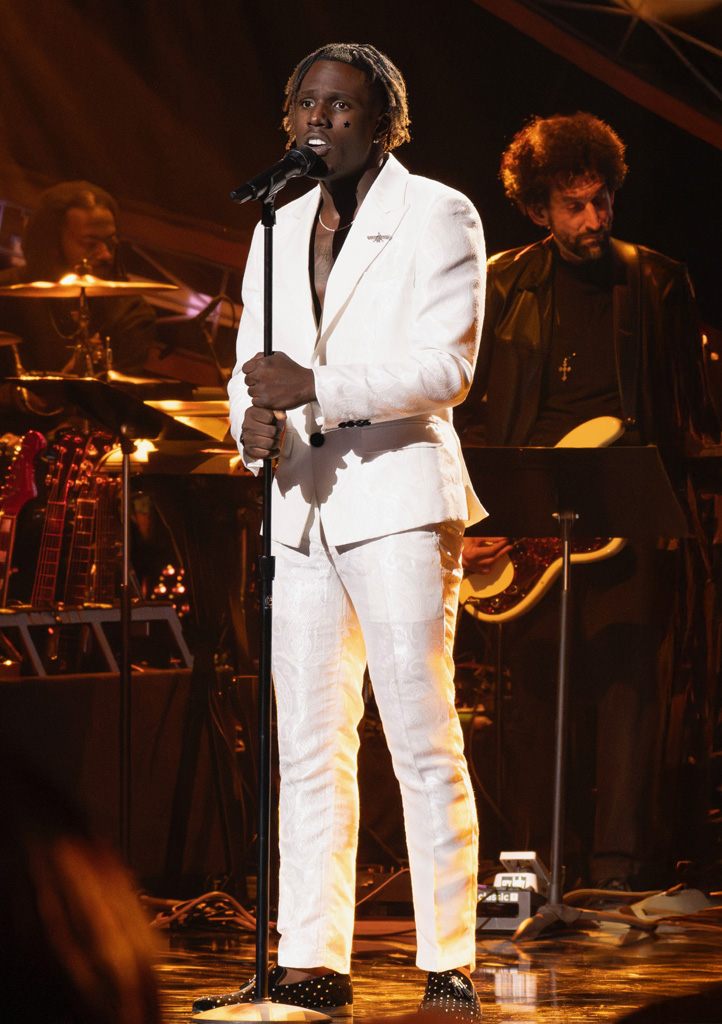In a world quick to celebrate overnight sensations, Jamal Roberts’ story cuts through the noise like a soul-stirring gospel chorus. The 27-year-old from Meridian, Mississippi, didn’t just win Season 23 of American Idol on May 18, 2025—he shattered ceilings, healed wounds, and ignited a firestorm of inspiration that’s rippling across the globe. Picture this: 99 doors slammed shut in his face, each “no” echoing louder than the last. Audition after audition, competition after competition, Roberts faced rejection that could have crushed lesser spirits. But on that fateful 100th try, he didn’t just step through a door—he kicked it wide open, emerging as the first Black male American Idol champion in 22 years, following in the footsteps of Ruben Studdard. Today, his journey from the dusty pews of a small-town church to viral stardom is redefining success, proving that persistence isn’t just a virtue; it’s a superpower.

Roberts’ odyssey began humbly, rooted in the rich soil of Southern gospel traditions. Born on November 6, 1997, he grew up under the watchful eyes of his grandparents—his paternal grandfather a bishop, his maternal one a deacon—who spotted his raw talent early. “They heard me singing in church and said, ‘Boy, you’ve got something special,’” Roberts later shared in an interview. Those Sunday services became his first stage, where hymns by Marvin Sapp and the late Lee Williams weren’t just songs—they were lifelines. By his early 20s, Roberts was a physical education coach at Crestwood Elementary School, molding young minds by day while chasing dreams by night. Father to three daughters, he balanced diaper changes with vocal warm-ups, his voice a beacon for his girls and a whisper of hope for himself.

The rejections started piling up like storm clouds over the Delta. In 2020, he auditioned for BET’s Sunday Best, a gospel showdown that felt like destiny. Finishing third, mentored by icons like Kirk Franklin, should have been a triumph. Instead, it stung. “I was rejected twice,” Roberts admitted on The Rickey Smiley Morning Show, his voice steady but laced with the weight of those words. Undeterred, he turned to American Idol. The first audition? A polite pass. The second? He prepared one song, but judges demanded two—another door bolted. Each “no” chipped away at his confidence, yet Roberts leaned harder into his faith. “My grandfather’s unwavering belief became my blueprint,” he said. “I told myself, ‘If God says yes, who can say no?’” That mantra, drawn from biblical resilience, carried him through sleepless nights and second-guessing mornings.
Then came the 100th shot—Season 23. Roberts auditioned with a haunting rendition of Tom Odell’s “Heal,” a performance so raw it went viral overnight, amassing millions of views and drawing comparisons to Fantasia Barrino’s iconic 2004 breakout. “I’m anointed,” he declared post-win, a simple phrase that exploded into a hashtag (#ImAnointed) trending worldwide. Mentors like Jelly Roll raved, calling Roberts’ take on “Liar” a reinvention that made the track “his own.” Fantasia herself mentored him that week, her eyes misty as she witnessed history in the making. The finale wasn’t just a victory; it was vindication. Roberts edged out country contenders, his soulful timbre blending gospel fire with pop polish, proving talent transcends genre.
But the crown came with thorns. Back home in Laurel, Mississippi, what should have been a hero’s welcome turned sour. Amid whispers of racial tension—fueled by a perceived snub from Carrie Underwood during the season—Roberts faced online threats. A ceremonial key to the city dangled like a poisoned chalice. “In this sad world we live in,” he posted on social media, declining the honor with grace. “I’ll celebrate with my community my way.” The backlash highlighted the ugly undercurrents of fame, yet Roberts flipped the script, using his platform to advocate for unity. His response? A flood of supportive messages from fans worldwide, turning personal pain into collective power.

Fast-forward to October 2025, and Roberts’ “world domination” is no hyperbole. His debut single “Heal” topped charts, while his Facebook page—boasting over 734,000 likes—pulses with stories from followers who’ve turned their own “99 nos” into breakthroughs. “Your story got me through my divorce,” one fan messaged. “I quit my dead-end job because of you,” wrote another. Roberts’ movement isn’t about fame; it’s a call to arms for the overlooked. He tours relentlessly, from sold-out arenas to pop-up church gigs, preaching resilience through song. Rumors swirl of a Netflix docuseries (though he debunked hasty ones) and collabs with legends like Jamie Foxx, one of his idols alongside Michael Jackson and B.B. King.
What makes Roberts’ saga seismic? In an era of filtered perfection, he embodies the messy beauty of the grind. Success, he insists, isn’t the absence of failure but the audacity to outlast it. “Those 99 rejections? They were rehearsals for my yes,” he told Atlanta Black Star. As his music streams skyrocket and #JamalRobertsResilience trends on TikTok, millions are rising, fighting, never giving up. From a P.E. coach in Mississippi to a global force, Jamal Roberts isn’t just winning—he’s rewriting the rules. In his words, echoing across stadiums and screens: “If I can heal through the hurt, so can you.” And just like that, one man’s 100th “yes” becomes our collective anthem.